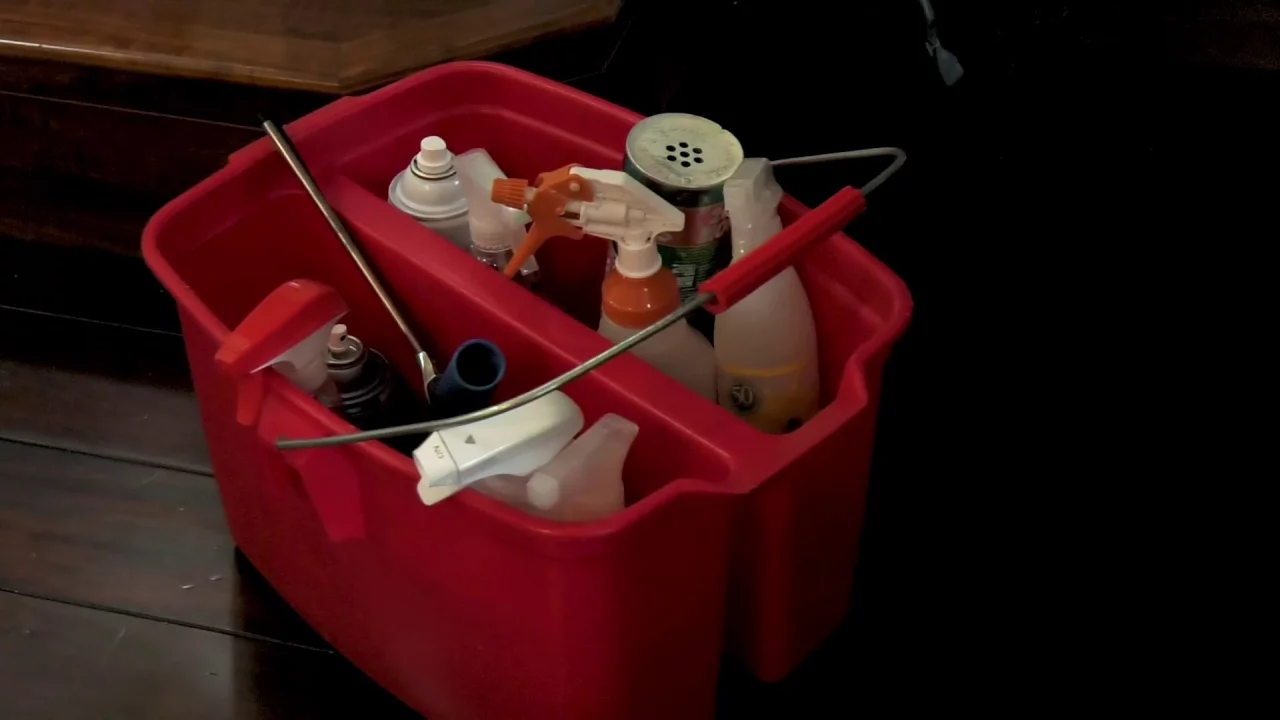Send unlimited invoices for free!
Create free accountIndustry-specific templates with customizable options.

Matriarch of the family, Gloria Garcia earned her living as a house cleaner. And she passed on not only her skills to her daughter, Emma, and granddaughter, Melanie, but her love of cleaning.
“It’s one of those things where you either find it very therapeutic or you don’t,” Melanie explained. “And for some reason we just enjoy doing it.”
It’s for this reason that Emma started cleaning houses with a residential cleaning company after retiring from a career in customer service. She just needed something to keep her busy. But perhaps because she loved doing it so much, she was also really good at it. The customers would compliment her on being so detailed, and they started asking for her specifically.
At the time, Melanie was living downtown and had noticed a shortage of cleaning services in her area. Downtown Los Angeles, known as DTLA, is the city’s central business district that has grown into a residential area as well. DTLA is now home to more than 50,000 people in urban high-rises. According to Melanie, the area is made up of only a couple square miles, which means that there’s a lot of potential business in a small amount of space.
So Melanie had a plan. “I told [my mom], ‘Look, you’re really good at what you’re doing. Why don’t you come downtown?’”
Besides the shortage of cleaners, and the fact that her daughter was living there, DTLA was also meaningful to the Garcia family. When Gloria, Emma, and the rest of their family first immigrated to the United States forty years ago, they lived downtown.
Emma will still go into a new loft or office space and share memories of what the building used to be — frequently a garment manufacturing facility. “She’ll be like, ‘Oh yeah, I remember this place. This used to be where we used to do this,’ Melanie explained. “But now it’s all being modernized. We’ve definitely been around for a while in the neighborhood, and we’ve been a part of that transformation.”
Emma took her daughter’s advice, and together, they started the Oranges and Lemons cleaning company. Melanie handles what she calls the “boring stuff,” such as payroll and setting up safety meetings for their staff. Melanie’s brother Gerardo handles much of the marketing. Meanwhile, Emma manages the staff, as well as the cleanings.
“And it spiraled from there,” Melanie said. “It was mostly meant as something to keep her busy, but it just really became successful.” The business now has a staff of 18 people.
What Has Made Oranges and Lemons So Successful
Part of why Melanie believes the business has been successful is their love of cleaning and her mother’s abundance of energy. “I cannot keep up with her. She walks faster than I do,” she explained.
But a big part of what has made the business work is how they treat their employees. Oranges and Lemons has built up their brand and reputation on quality work, and this is possible because their employees are able to do quality work.
Melanie calls this working smarter not harder: “We try to do safety trainings and keep our team healthy. We provide paid time off for holidays, because it’s hard work and you have to be able to rest.”
According to Melanie, LA has the most domestic workers per capita. Between this, and their own family’s connections to the work, the Garcias understand the importance of advocating for house cleaners and other workers.
What follows are Melanie’s tips for other cleaning companies that want to protect and advocate for their employees.
How Cleaning Companies Can Protect Their Employees and Become Advocates for Domestic Worker Rights
1) Partner with National Domestic Workers Alliance
Oranges and Lemons partners with the National Domestic Workers Alliance (NDWA) which advocates for the rights and fair treatment of domestic workers.
“We’ve partnered with them because we think it’s critically important to take care of people who are making it possible for the rest of the world to be successful. The people who clean our offices and homes. And, unfortunately, a lot of domestic workers either aren’t paid overtime or given breaks, or their work just isn’t valued.”
Partnering with NDWA can look like many things:
- Pay your employee’s NDWA membership ($5 a month), which provides benefits to domestic workers, such as a $5,000 life insurance policy and job trainings.
- Get involved with the organization to learn about and aid its political efforts.
- Encourage anyone who uses an independent contractor to clean their home or office to contribute to Alia, an initiative of the NDWA. Alia allows workers to take paid time off and will soon include accident insurance and retirement benefits.
2) Educate Your Customers and Those Who Don’t Choose Your Services
Oranges and Lemons is not the cheapest service in the area, so when a potential customer decides to use another service or individual, it’s often because of the cost difference. When this happens, they will send a follow-up email with resources—like Alia—to make sure whatever company the customer does choose is treating their house cleaners or janitorial staff fairly.
“I know people don’t want to put anyone in a bad place. It’s more like, ‘Oh, here are these two services and this one’s cheaper, so I’ll go with the cheaper one.’ But they don’t really think about what it means for this person to be less. Or the costs for that individual. I know it’s not anything malicious, so we’re trying to just say, ‘Hey, just keep this in mind. If you do choose that [cheaper service], you can still support that person in your own way.’”
3) Provide Trainings for Your Employees
Oranges and Lemons also partners with Hand in Hand Domestic Employers Network to educational resources for their cleaners. A big education is safety training.
She explained that cleaning “wears people out, and you can at the start help your team know how to protect their bodies. They’ll be working much, you’ll have a better team for a longer period of time.”
Hand in Hand may be able to help identify local organizations and networks that help offer these trainings to your employees.
Hand in Hand can also help with other resources: “We’ve also been working with them to provide information for our team members on things like immigration and job safety, what’s the appropriate compensation: just to make sure that they know what their rights are as employees. It’s always better, in my mind, to have a third party say it instead of me telling you what you should know.”
Hand in Hand also maintains an employer checklist, “designed to help you create a work relationship that is mutually beneficial and supportive.”
4) Fight the Stigma
There’s still a strong stigma that house cleaning is easy work, which makes it more difficult to convince the general public that domestic cleaners deserve fair wages, benefits, and workplace treatment.
“It’s a real hard struggle to convince someone that housework and janitorial work is real work. Yes, it is ‘unskilled labor,’ but it still is something that requires training, and it’s physical labor.”
Melanie that this stigma is connected to the devaluing of traditional understanding of “women’s work.” “Even teachers or nurses aren’t valued as much as a what is considered traditional men’s work,” she explained.
“Ending the stigma is going to take time, and I think that sometimes, maybe if we ask someone to do that work for a day, they’d be like, ‘Oh yeah, this is hard!’ But it is what it is, and we’ll just keep working on it.”










